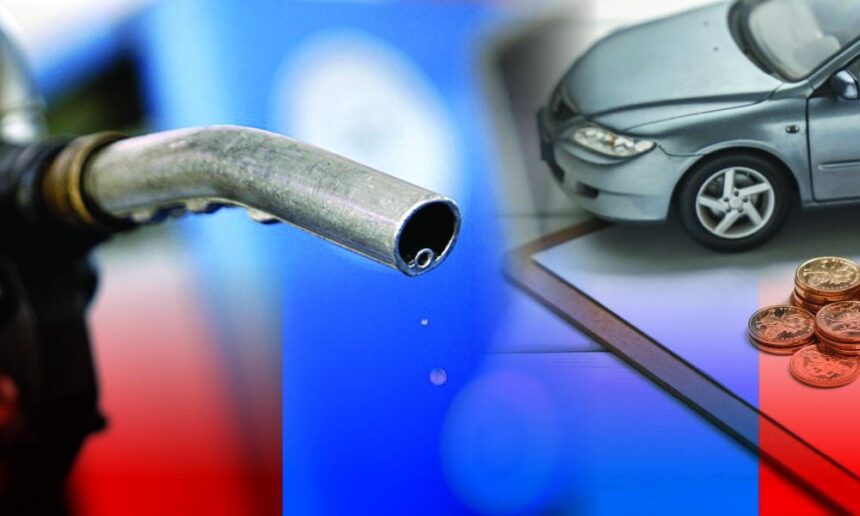The underlying reason why Mongolia’s economy is failing today is the fact that prices are not being set by the market, but by the government. It is a foolish, populist mechanism that never delivered a good outcome. People now have a false belief that prices cannot be changed, largely because of the unworthy deeds of a few politicians who either neglect everyone’s interests except for their own or completely lack the concept of how a market economy works. As a result, we are seeing shortages of goods and a heightened reputation for such politicans, while our country faces a continuously grimmer future.
The government had been regulating fuel prices with relatively small fluctuations since 2008, by decreasing the excise tax when petrol prices at the border were high and vice versa. However, starting from 2017, our country was dealing with significant external and internal debt challenges and the government was forced to give 25 per cent of its budget revenue to be able to make interest payments alone. So the government sought aid from abroad and received another soft loan from the International Monetary Fund (IMF).
In doing so, the government increased the excise tax on fuel (among many other taxes that were increased) and claimed it was because of a requirement from the IMF. Despite increased import prices, the fuel excise tax was increased twice in July and in November 2017. It made fuel distribution companies run deficits and they increased prices in response. If these companies choose not to increase prices, the whole affair would result in fuel shortages.
Restricted prices cause deficiency and bankruptcy
Restricing prices by decrees of the government or any other organization eventually results in deficiency of the product. It is because the demand and supply of a product are always changing contingent to many different factors, and it is only the price that can regulate those differences adequately and ensure the market runs normally. In other words, it is the golden rule of why prices increase if the product is in short supply or decrease when it is abundant. When this rule is broken, you can expect to see a shortage soon afterwards, and bankruptcy afterwards.
Manufacturers, suppliers, and consumers use prices as their key information when managing their use of products and business operations. It allows supply and demand to be in balance and complements the market to run normally. When the balance is broken to either a small or bigger magntitude, it is restored as prices change. But when the government forcefully sets the price, deficiency and failure become inevitable.
This can be seen from the past experiences of the Mongolian government, which has been shackling progress and development by always trying to control the price of many consumer goods such as electricity and fuel. For example, let us take a look at what comprises fuel prices. Mongolia spends one fifth of its export revenue on importing fuel. Our fuel supply is completely dependent on Russia, and a Russian company supplies fuel to Mongolia at Singapore gasoline prices.
As of January 2018, one kilogram of A92 petrol costs 1,630 MNT at the border. After taking into account the 512 MNT paid for taxes (custom tax of 81 MNT / 5 per cent, road fund tax of 25 MNT, excise tax of 210 MNT, and VAT of 195 MNT – 30 per cent in total) and 16 MNT paid for railway transport, the total cost of a liter of A92 petrol stands at 2,158 MNT. This sum translates into 1,662 MNT per liter, and its is now being sold at at 1,620 MNT for a liter. Even when operational costs are not included, they are running a deficit of 42 MNT per liter. This would lead the companies to either stop the sales or go bankrupt. In both cases, no one from the authorities will be held responsible, and it would be the people who would end up paying for it.
Fuel importers put up with these ‘regulated’ prices for three months and waited for the government to reduce the excise tax. However, it did not happen and they were left with no choice but to increase the prices. The dysfunctional organization named ‘Price Council’ has run out of ideas about how to resolve the issue. Having made their gains after increasing the taxes, the government has started protecting its ‘reputation’ by putting the blame on the companies. Mongolia is now facing a shortage of fuel and petrol. It spells the end of yet another price stabilization fairly tale from Mongolbank.
One would guess that – if there are fuel shortages – Ulaanbaatar would have fewer cars and more horses, which would allow the traffic to run smoother and reduce air pollution.
Freeing up prices brings choices and progress
However, before mounting our horses, let’s talk about what would happen if the government did not set prices and why it is better for the people to have prices set by themselves as agents in the market.
If the government did not regulate prices, there would not be any need to act out a fake play named ‘Price Council’ and co-acted by the government, company, and labor union. These three institutions do not represent consumers, so they do not have the market power. In contrast, in a free market, consumers will make their own choices, starting with the cheapest products. When it happens, our fuel distributors will start competing each other on their operational costs and the prices they offer, given they cannot influence the prices on international market. This free competition is what makes prices go down. If fuel distributors conspire with each other and maintain a single, same price, they can be fined, and even have their permits withdrawn – all within legal boundaries.
A free price system optimizes demand and encourages different solutions. For example, when fuel prices increase naturally, consumers will start using fewer cars and want to use public transportation more. This would create the demand to improve the public transportation system, increase the number of routes, and provide better schedules. The numbers of cars will go down, and so will traffic jams and air pollution.
Furthermore, people would be seeking different ways to do things where they have become used to utilizing fuel. For example, they would look to use solar and wind energy to heat their houses, buy solar panels for additional power, and eventually want to purchase electric vehicles. In these ways, a free price system changes the consumer structure. And, as the demand for fuel reduces, its prices will decrease. This is how consumers set the price.
If the government stops restricting prices and abolishes the excise tax, the fuel price will be reduced by 30 per cent.
2018.01.17












